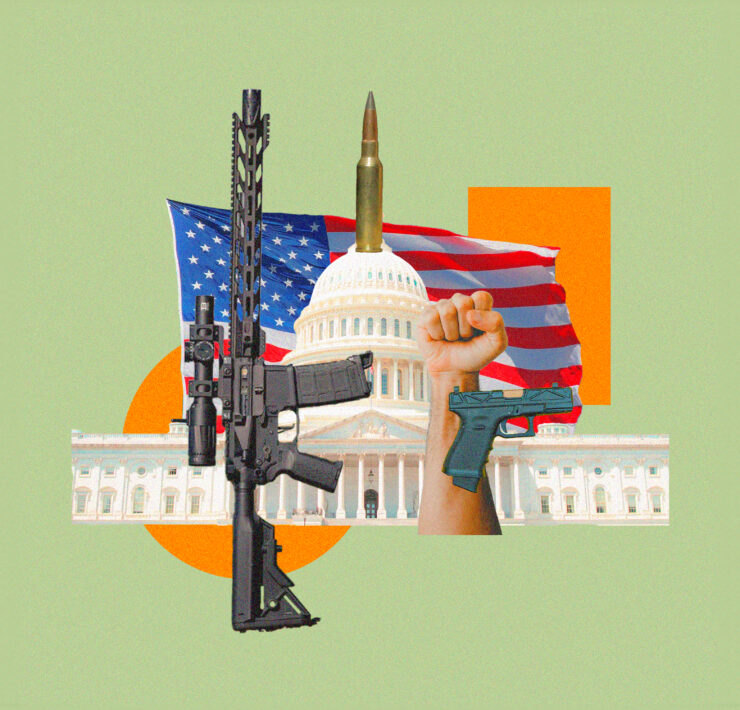One of the many social issues that has been exacerbated by the COVID-19 pandemic is America’s huge and growing houselessness problem. Depending on the numbers you look at, over half a million people in the U.S. don’t have a place to sleep at night — representing 17 out of every 10,000 people in the country. Some experts argue that the actual number is much higher. Nobody argues that it is not a serious problem in the U.S.
It’s a problem Terence Lester is trying to solve. After spending several years as a pastor and church planter, Lester has moved to nonprofit work, focusing primarily on helping raise awareness about things like poverty, homelessness and systemic economic inequality. In his book When We Stand: The Power of Seeking Justice Together, Lester discusses the obstacles that keep Christians from getting involved in important causes. He spoke with RELEVANT about the blight of homelessness in the U.S. and how Christians can get involved.
This conversation has been edited for length and clarity.
What are some of the misconceptions you’ve come across that are impediments to us as a church being more service-minded in our lifestyles?
I think as we see how Jesus actually lived his life, he was always others-focused. I love these little lines [in the Bible] where it says, “And Jesus saw …and Jesus saw …and Jesus saw.” But he didn’t stop with seeing. Jesus embodied what it means to be proximate in presence. And there’s a difference between proximity and presence. We can be proximate to something or someone for a brief period of time and not even realize that we’re next to the person or the thing. But I think when you really embody a presence, you’re physically there and you are mentally there as well. You’re intently focused on your neighbor who is in front of you. When we talk about this idea of neighbor, Jesus was talking about people who don’t look like you or come from the same social location you come from. All of these different things.
And so I really believe that one of the greatest challenges has been not developing these proximate relationships where we practice the ministry of presence with people who are suffering.
And then, there’s little time, right? People are living lives where all of their margin is eaten up. That reinforces this event mentality where, “I don’t have enough time to give my life away to these things.” What I’m arguing is that you don’t have to give your life away. You just have to become available so God can actually use your life to make a difference with connecting with other people.
Some churches wrestle with the idea of partnering with local organizations — other churches, maybe other faith groups or non-religious charity groups, maybe even local government. How can Christians navigate some of the interpersonal tensions that come up with those cooperative partnerships?
I deeply think that churches should get involved with organizations. We’ve had a number of churches and communities of faith get involved in the work that we do to affirm the dignity of people who are experiencing homelessness. And I can tell you, there are times when it hasn’t been a good witness for people who don’t believe in Jesus to see church people fighting about whose name will get recognition. But then there has been really powerful and transformative times when we’ve seen faith-based communities come together in the name of God to take the love of God beyond the four walls of the church.
I tell leaders who are leading communities of faith that there’s already someone in the community that’s doing the work that you may be passionate about. You can join in this good work and bring this collective force together to do more good and also to bring more glory to God.
You’ve touched on this a few times, that in a lot of churches, you sense this idea that there are two buckets; there’s the spiritual work and there’s the justice work that we do. And you should do both, but you can’t really do them at the same time because that gets confusing.
Yeah. That goes back to my experience being a Black man in America. I don’t have the luxury of separating my experience with brown skin and my faith. And so, in my tradition and my experience as a Black man being discipled in my faith journey, a large part of how I see the world is not only framed through a lens of justice and liberation, but it is also driven by my centeredness in God and my faith in Jesus. When I read the scriptures and it says that Jesus came to bring good news to those who were made poor by systems, I can identify with that because I understand that from my lens in being a Black man in America.
So I’ve never been able to separate my faith from justice talk. My ancestors and people who I’m standing on the shoulders of right now have fought all types of justice battles trying to overcome oppression and exclusion and racial trauma that has been entrenched in this country. I use my faith to do that. I use my faith to show up and continue to show up. And so there’s no separation for me.
Something that you hear a lot in that type of work, and I feel like it does come from a lot of white Christian folks, is this idea of a hand-up versus a handout. “Well, we can’t just give them resources because we don’t know what they’re going to do with money.” That is often used to tap the brakes on how much work could really be done, could be accomplished.
Could you speak to that impulse that we feel, both as organizations and as individuals, when it comes to helping the homeless?
Yeah. It’s a really great question. First, I want to quote one of my favorite quotes. “Our inability to relate to the experience of homelessness is also our biggest obstacle to ending it.”
I ask people to imagine a world where it’s illegal to sit down. It’s illegal to sleep in certain places. It’s illegal to even have multiple belongings with you. For some of us, if we were to put ourselves in that frame of mind or that context, we would say, “No, that’s unrealistic,” or, “No, that’s ludicrous.” But for people experiencing homelessness across the United States of America, these circumstances are an ordinary part of daily life.
In the majority of U.S. cities right now, it is illegal to do things like rest, sit, lie down, share food, sleep in cars in public places. There are over 200 cities right now that have created laws and ordinances that have criminalized what it means to experience homelessness.
I think this criminal view of what it means to be homeless has stripped the dignity away. It’s also violated the human rights of a person experiencing homelessness. And it’s not affirming of the Imago Dei that reside in my brothers and sisters who don’t have an address.
Oftentimes I want to say this, because this is a huge point; just because a person doesn’t have an address does not mean that they’re not your neighbor. When Jesus says, “Love your neighbor,” he’s also talking about people who are experiencing homelessness.
There’s a city in South Carolina, on January 16, 2021, that unanimously voted to institute a ban against sleeping in public places. Now here’s the thing; there is a large, growing population of people experiencing homelessness. There’s a shortage in beds, but then there’s a ban to not allow people to sleep.
The Department of Justice, actually had to file a brief in 2015 that literally stated that it’s unconstitutional to punish people for practicing life-sustaining activities, meaning if you don’t have anywhere to sleep and you need to rest, because rest is a part of a life-sustaining activity, how could you take that away?
But I say all of that to say, I think what we have to do, as believers, is see people who are living on the streets the same way you would see someone sitting next to you in church holding a cup of coffee. God doesn’t love the person next to you in a church that drove there anymore than the person who had to sleep behind a building. And if we are really going to be about loving our neighbors, that also includes people without an address.
We’ve got to get past this mentality of, “If we’re going to help, we may hurt people.” Some people don’t have identification cards, some people can’t have access to showers. Right now, we’ve launched a campaign providing sanitation all around the United States through a campaign called LoveSinksIn, giving people experiencing homelessness access just to wash their hands because they were telling us to do that because of COVID. How can you require somebody to do something if you’re not also going to provide the tools for them to perform behaviors? And as a member of the family of God, how much more can we do to lead the initiative in loving our brothers and sisters whom God loves and has created and fashioned them in his own image, inviting them to the table? The Lord’s table. We’re called to extend the table, not to build walls.























